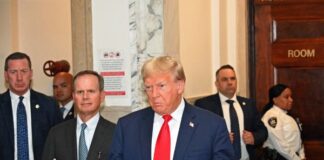Jens Stoltenberg, the head of NATO, said this week that the West needs to get ready for a “long war in Ukraine.” He also said that there’s “no doubt” that Ukraine will ultimately join the armed alliance led by the United States.
During an interview with the German media outlet Funke, the lawmaker from Norway dismissed the idea that the confrontation between Russia and Ukraine would stop anytime soon.
“When a war starts, most people don’t know how long it will last,” Stoltenberg told France24. “Because of this, we need to get ready for an extended war in Ukraine.”
“We all want peace as soon as possible,” the NATO Secretary General said next. “However, we also have to acknowledge that the country of Ukraine would vanish if President Zelensky and the Ukrainian people cease fighting. Russia along with President Putin will enjoy peace if they put down their guns.”
The comments come before President Volodymyr Zelensky’s planned trip to Washington next week, where he is scheduled to meet with President Biden along with members of Congress once more to ask for more military help in the fight against the well-entrenched Russian forces that control large parts of Ukrainian territory in the southern part of the country and throughout the Donbas region.
Reports say that Congress is thinking about giving Ukraine an extra $24 billion in assistance at the request of the Biden administration. This would be in addition to the $113 billion already spent by American taxpayers to support Kyiv in what has become a proxy war with Moscow.
Secretary General Stoltenberg, whose term as head of NATO was artificially stretched earlier this year because of the war in Eastern Europe, said that “there is absolutely no doubt that Ukraine will one day find itself in NATO.” He also said that the war would last a long time.
NATO leaders decided at the most recent summit in Vilnius, Lithuania, that Ukraine may potentially join the alliance, but that it would first need to implement changes to fulfill the group’s membership requirements.
In 1997, the US State Department published a list of “minimum requirements” that stated that potential members of NATO had to show that they were committed to preserving democracy by “tolerating diversity,” “demonstrating progress” toward creating a market economy, maintaining “firm civilian control” over their military, honoring other countries’ sovereignty, and “working in the direction of a compatibility with NATO forces.”
Since admitting a nation engaged in combat would instantly activate Article 5 of the NATO treaty, which requires all members to defend one another, it seems doubtful that the alliance would accept a nation in conflict. Concerns about the current border disputes between Russia and Ukraine would also likely surface, given that minor territorial disputes have the potential to turn into global wars if the boundaries are not properly established before Ukraine enters the Western alliance.
As of now, Kyiv has refused to contemplate giving up any land in return for a peace agreement with Moscow and NATO membership, even from representatives of the alliance. Instead, it has vowed to fight until its boundaries from 1991 have been fully restored.
These content links are provided by Content.ad. Both Content.ad and the web site upon which the links are displayed may receive compensation when readers click on these links. Some of the content you are redirected to may be sponsored content. View our privacy policy here.
To learn how you can use Content.ad to drive visitors to your content or add this service to your site, please contact us at [email protected].
Family-Friendly Content
Website owners select the type of content that appears in our units. However, if you would like to ensure that Content.ad always displays family-friendly content on this device, regardless of what site you are on, check the option below. Learn More



